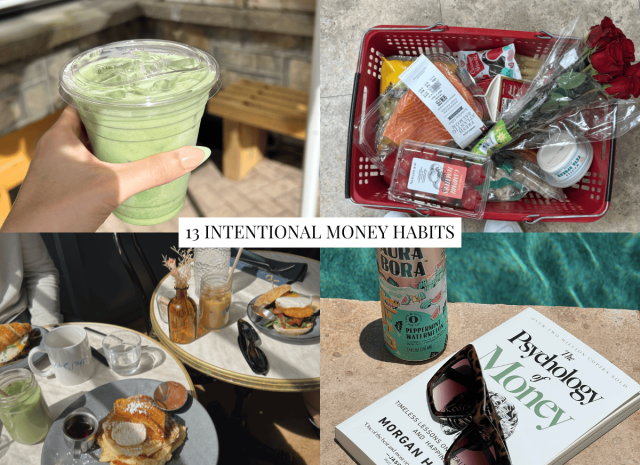How to Build Better Money Habits Without the Overwhelm
We often pick up money habits from our parents or friends without even realizing it. Then one day, you’re in your mid-20s wondering why your finances feel messy, stressed about money, and unsure where to begin fixing it.
The good news? Taking control of your money doesn’t have to be hard. Swapping old habits for smarter ones can actually feel freeing. Whether it’s January or July, these simple steps will help you build confidence and reduce money stress.
Good Money Habits to Start This Week
- Create (and Actually Use) a Budget
Yes, budgeting sounds boring—but it’s the foundation for financial control. Make it fun: grab a coffee, play music, and track your spending. A budget shows where your money goes (looking at you, Trader Joe’s runs) and helps avoid last-minute rent panic. It’s the first step to never stressing about your bank balance again. - Set Clear Financial Goals
Whether it’s paying off debt or saving $10K, goals keep you focused long-term. Pick 1-3 priorities, break them into smaller steps, and watch your progress. - Spend Less Than You Earn
Simple but powerful. Know your monthly income vs. essentials, then ask: “Is that extra $70 splurge worth it?” Living below your means removes budget guesswork. - Notice Your Emotional Spending Triggers
Stressful day = UberEats. Rough week = online shopping. Pause and ask: “What am I trying to fix?” Temporary relief now often means more stress later.
Monthly Habits for Bigger Progress
- Make a Debt-Free Plan
Credit cards or student loans—map out your fastest path to freedom. Paid off a card? Consider closing the account to avoid relapse. - Use Cash or Debit Over Credit
Credit cards tempt overspending. Stick to cash/debit to stay within your limits. - Watch for Lifestyle Creep
Got a raise? Check if you’re unconsciously spending more (extra brunches, online carts). Nip it early.
Smarter Shopping Habits
- Skip Small Impulse Buys
Those $10-20 purchases add up fast. Try the 2-week rule: if you still want it later (and can afford it), go for it. - 30-Day Rule for Big Purchases
Want something pricey? Wait 30 days. Still love it? Budget for it. - Compare Prices on Subscriptions
Don’t overpay for services. Shop around for better deals. - Question Sale Items
Ask: “Would I buy this if it weren’t on sale?” If not, skip it.
Prepare for the Unexpected
- Build a $1,000 Emergency Fund
Start small—even $50/month adds up. Flat tire? No stress. Hit $1K? Keep growing it. - Review Medical Bills
Errors happen. Always check charges and ask for cost estimates upfront to avoid surprises.
“`



























